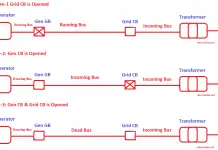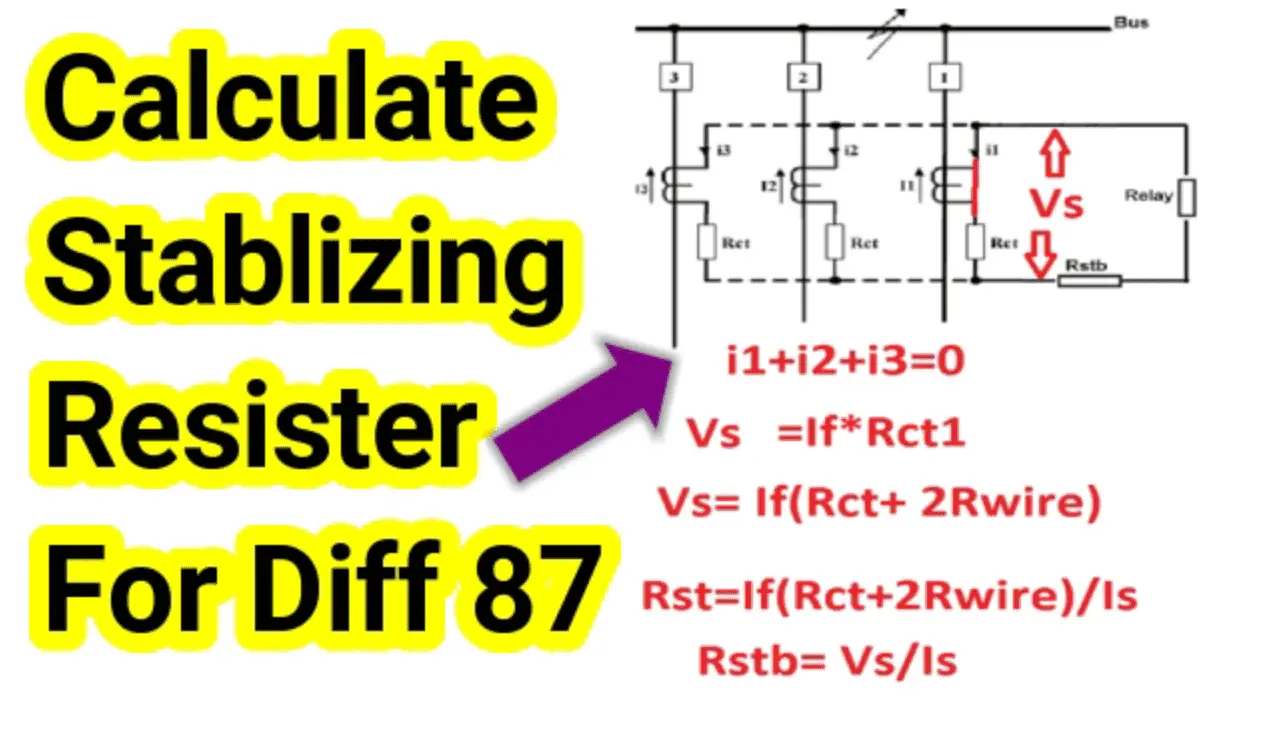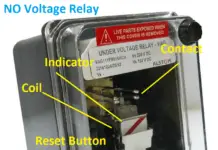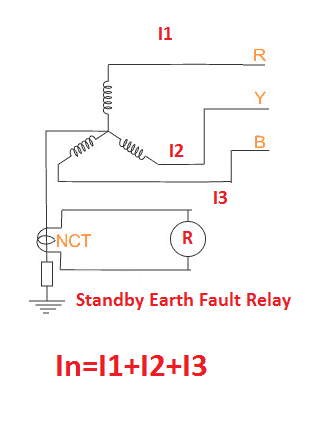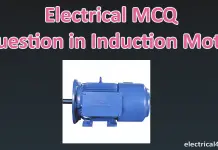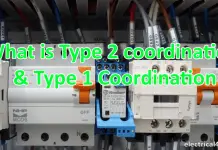Advantage of Neutral Grounding Transformer NGT?
Neutral grounding transformers are a single phase transformer which is used to protect the generator/alternator winding from damaging short circuit. NGT are mainly used to reduce the installation cost of NGR (Neutral Grounding Resistor). Low resistance grounding of the neutral limits the ground fault current to a high level (typically 100 amps or more) in order to operate the protective fault clearing relays and current transformers. These devices are then able to quickly clear the fault, usually within a few seconds.
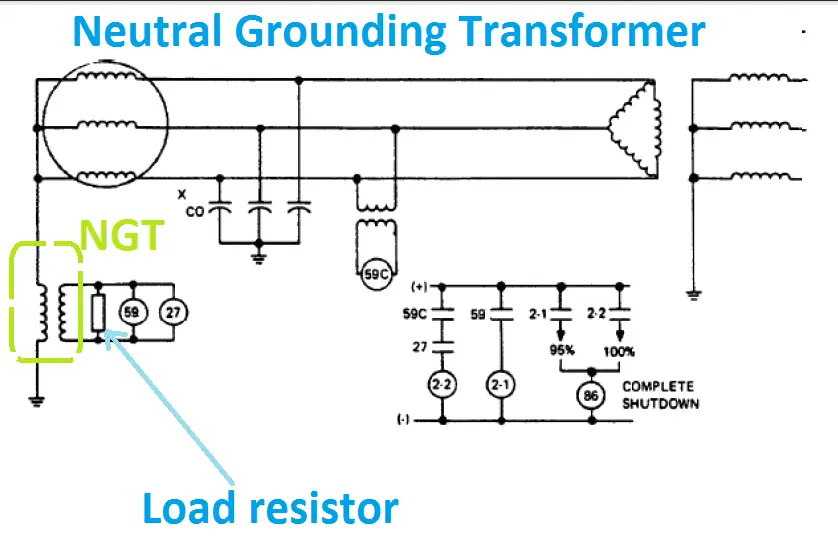
[wp_ad_camp_1]
In our last study we have seen how to calculate the resistance value for 11kV 100Amps fault current power system. To install the NGR for that system we have to purchase a resistor of 11kV insulated, 100 Amps current carrying capacity. It is too costlier.
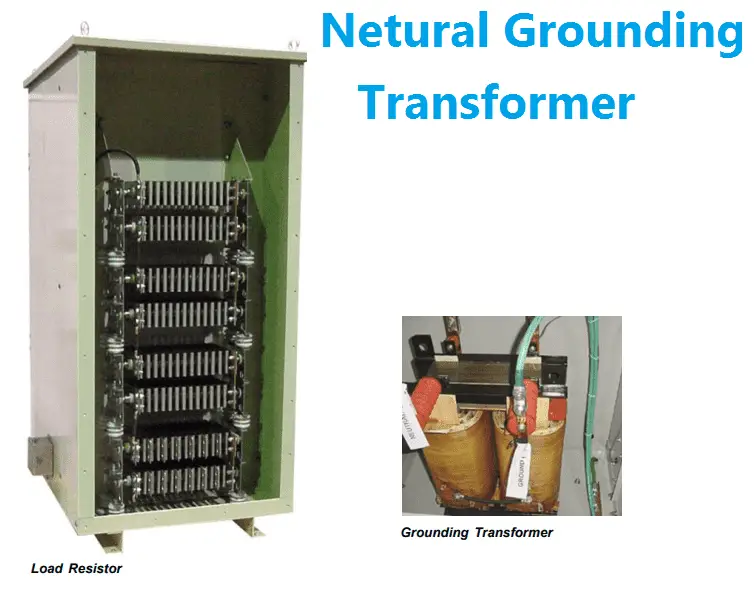
[wp_ad_camp_1]
Here installing NGTs we can reduce the cost. Ok then how NGT is economic. The NGT transformers are just like an instrument transformer whose output voltage is equal to 110 Volts or 220 Volts. The primary of the NGT is connected between neutral to ground and they have the primary voltage rating of the same system phase to ground voltage range. Consider One neutral grounding transformer is connected and the output voltage of 110 Volts. Here the simple concept that the resistance which is connected across secondary reflect the square of the turns ratio. The turns ratio of the transformer is 59. The square of the turns ratio is 3481. Hence by connecting 0.02 ohms resistance across the NGT secondary gives 63.5 ohms (3481 * 0.02 ohms) resistance in the primary. Thus the resistance value get decreases and you can make the insulation only for 110 Volts. Hence the cost for NGR reduced by installing low cost NGTs (Neutral grounding transformers).

